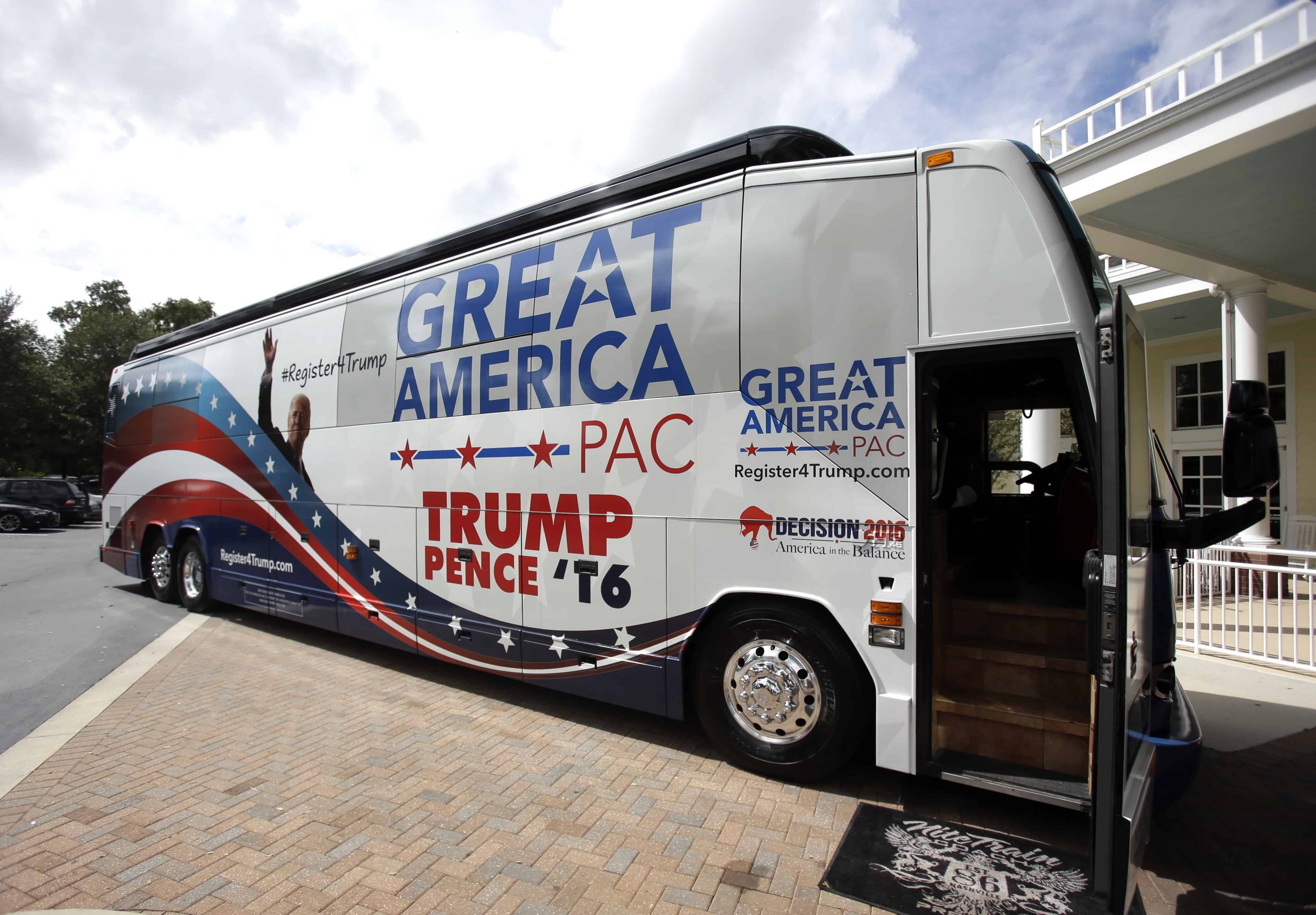A controversial pro-Donald Trump super PAC mistakenly released the personal email addresses and cell phone numbers of hundreds of Trump-loving donors — and some of them are livid.
The email and phone number disclosure came as part a routine campaign finance filing Great America PAC made Tuesday night to the Federal Election Commission.
A Center for Public Integrity review of the document identified 336 people who were affected by what Great America PAC’s treasurer says was an “error” that occurred while electronically sending donor information to the FEC.
Trump’s campaign formally disavowed Great America PAC in April in a letter to the FEC, but last week, Trump’s son, Eric Trump, appeared at a fundraiser for the group. Such a switch underscores Trump’s tortured relationship with big-money politics and allied political groups he can’t, by law, directly control.
Dan Backer, attorney and treasurer for Great America PAC, vowed to fix the mess.
“We will of course be contacting all affected contributors tomorrow to apologize for the error, and uploading an amended report,” Backer said.
CMDI, the company that Great America PAC pays for donation accounting services, explained that “the client had data entry errors” and “we’re working with them to fix it.”
In the meantime, several people who anonymously replied by phone to a Center for Public Integrity email informing them of Great America PAC’s mistake launched into expletive- and threat-filled tirades.
None of them were aware that anyone could view their email and phone information. They sometimes directed their angst at the Center for Public Integrity for informing them of the problem, and sometimes at Great America PAC for its information disclosure snafu.
One woman, who identified herself as a 78-year-old Trump supporter from Georgia, told a Center for Public Integrity reporter she would “make sure you never live to see the day” that “you slander Mr. Trump with your lies, you little s— a– liberal Hillary lover.”
Reactions of more than a dozen other Great America PAC contributors, who offered more measured responses to the outing of their personal information, ranged from seeking legal relief to begrudging resignation.
“I have forwarded your email to the district attorney’s office, consumer protection unit,” said Terry Raineri of San Jose, California.
“Not happy as the Clinton Mob may use it against me for harassment purposes or worse,” wrote Barbara Troendle of Pensacola, Florida, who has donated $250 to Great America PAC.
“Yes, I am concerned,” said donor Don Paris of Lynchburg, Virginia. “However, there is not much I can do about what is already public. I will make no more online contributions.”
Mitch Hanna of Grass Valley, California, who gave Great America PAC $250 last month, wasn’t bothered that his email and part of his phone number are a matter of public record. “I am fine with it,” said Hanna, the CEO of Sutter Auburn Faith Hospital in Auburn, California.
Most of Great America PAC’s donors make modest contributions, sometimes as small as a few dollars. Many identify themselves in federal disclosures as “retired.”
Political campaigns and committees are required by federal law to publicly release the names, addresses, employers and occupations of donors contributing more than $200 during an election, something Great America PAC notes on its website’s privacy policy.
While political groups, including Great America PAC, often collect supporters’ phone numbers and email information, they almost never make such personal information public.
Great America PAC — one of several notable pro-Trump and anti-Hillary Clinton super PACs operating this year — formed in early February and originally called itself “TrumPAC.”
Later in February, the group changed its name to Great America PAC after federal regulators warned the super PAC about incorporating the name of an active political candidate into its own moniker.
Great America PAC is technically a “hybrid” super PAC, meaning it may raise unlimited amounts of money to independently promote or attack political candidates, and separately, raise smaller amounts of money to directly donate to candidates.
It is backed in part by Bill Doddridge, founder of diamond retailer The Jewelry Exchange. And it is led by Ed Rollins, Ronald Reagan’s presidential campaign manager in 1984.
This year through August, Great America PAC has raised nearly $11.2 million, largely thanks to its aggressive online and telephone fundraising efforts.
Several million of its more than $9.2 million in expenditures this year have funded activities that ostensibly provide Trump’s campaign a direct promotional boost: TV and radio spots, online ads, bumper stickers and the like.
But the group has also spent several million dollars on line items that don’t directly benefit Trump’s presidential campaign — but are certainly good for political professionals.
They include handsome compensation for Rollins (more than $16,000 in August alone), various consulting services, fundraising efforts, payment processing fees and the renting of lists that contain personal information of prospective supporters and donors.
Longtime Trump confidant Roger Stone in May accused the group of being a “scam.”
But Rollins of Great America PAC later that month described the super PAC’s mission as “establishing the largest group of Trump supporters so we can spread Donald’s message and ensure he becomes our nation’s next president.”

